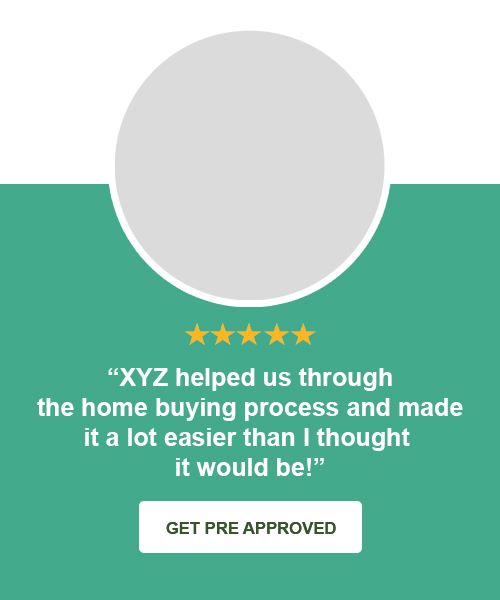
Benefits Of A Reverse Mortgage For Retirement Planning
Jump To
For some retirees, a reverse mortgage can be an important tool to ensure they have the funds they need for a comfortable retirement. Take, for example, John and Mary. Both in their late 60s, the couple had worked hard their entire lives and saved for retirement. But when it came time to retire, they realized that their savings weren’t enough to cover all their expenses in retirement.
That’s when John and Mary took advantage of a reverse mortgage. By tapping into the equity of their home, they were able to get the extra funds they needed for retirement without taking on additional debt or having to sell their house.
Reverse mortgages can be a great way for retirees to stay financially secure during their golden years. In this article, we’ll discuss how reverse mortgages work and the benefits they offer for retirement planning.
Overview Of Reverse Mortgages
When it comes to retirement planning, reverse mortgages can be a great option for some people. A reverse mortgage is a loan that allows seniors to access the equity in their home and convert it into cash. It’s an important tool for many retirees who are looking for additional income sources.
There are several types of reverse mortgages available, including Home Equity Conversion Mortgages (HECMs), proprietary reverse mortgages, and single-purpose reverse mortgages. Each type of loan has different eligibility requirements and benefits. For example, HECMs are insured by the Federal Housing Administration (FHA) and have a higher loan limit than other types of reverse mortgages.
No matter which type of reverse mortgage you choose, it’s important to understand all the costs associated with the loan so you can make an informed decision about whether it’s right for you. With careful research and financial planning, reverse mortgages can be beneficial to those looking to supplement their retirement income.
The next section looks at the advantages of using a reverse mortgage for retirement planning.
Advantages Of Reverse Mortgages For Retirement Planning
It’s no surprise that retirement planning is a hot topic these days. According to the Social Security Administration, more than 10,000 Baby Boomers turn 65 each day! With so many aging Americans looking for ways to supplement their income in retirement, reverse mortgages can be an attractive option. Here are some of the advantages of reverse mortgages for retirement planning.
One major benefit of reverse mortgages is that they allow you to access your home’s equity without having to sell your home or take out additional loans against it. This can provide you with a steady stream of income and also preserve your home or other assets as part of your estate plan. Furthermore, reverse mortgages are often much easier to qualify for because the eligibility requirements are not as stringent as those for traditional loans.
Reverse mortgages also offer more flexibility than traditional loans because they typically don’t require regular monthly payments. You can choose how you would like to receive the money from the loan (i.e., lump sum, fixed monthly payment, line of credit). Plus, any accrued interest on the loan won’t be due until after you pass away or permanently move away from the property.
So if you’re looking for a way to supplement your income during retirement without having to uproot yourself from your home or take on additional debt, then a reverse mortgage could be well worth considering. Up next we’ll look at what eligibility requirements need to be met in order to qualify for a reverse mortgage.
Eligibility Requirements For Reverse Mortgages
When it comes to reverse mortgages, eligibility requirements are key. Before you can access the potential benefits of a reverse mortgage for retirement planning, you’ll need to make sure you meet the qualifications. Here’s what to know:
- You must be at least 62 years old.
- Your home must be your primary residence and you must own it outright or have a low loan balance that can be paid off with the proceeds from the reverse mortgage.
- You must demonstrate an ability to pay ongoing property taxes and homeowners insurance premiums.
The good news is that credit score, income level and other financial qualifications don’t play as big of a role in determining eligibility for a reverse mortgage as they do for traditional mortgages. That said, it’s still important to speak with a qualified lender who can help assess whether or not this type of loan is the right fit for you and your retirement plans.
And now that we’ve covered eligibility requirements, let’s dive into understanding reverse mortgage fees so you can make an informed decision about whether or not this type of loan is right for your retirement planning needs.
Understanding Reverse Mortgage Fees
When it comes to reverse mortgages, fees are an important part of the equation. Understanding these fees is critical for retirement planning, so let’s take a closer look.
First, there are upfront costs associated with getting a reverse mortgage. These may include an origination fee and other closing costs that can affect how much money you receive from the loan. Additionally, there are ongoing fees such as servicing fees and insurance premiums that need to be taken into account when considering the overall cost of a reverse mortgage.
It’s important to understand all of these fees before making a decision about whether to get a reverse mortgage or not. Doing your research and talking to a financial advisor can help you make an informed decision that’s right for you and your retirement plan.
Now that we’ve discussed the fees associated with reverse mortgages, let’s dive into how they work.
How Reverse Mortgages Work
Before delving into the specifics of how reverse mortgages work, it’s important to first ask: is this a viable retirement planning option? The answer is yes, provided that you do your research and understand all the fees that come with a reverse mortgage.
Reverse mortgages are specifically designed for those over 62 who wish to access their home equity without having to sell their property. Rather than making payments, borrowers receive money from the lender and only need to pay back the loan when they leave or sell their home. This makes them attractive for retirees who want additional income but don’t want to move from their current home.
So how does a reverse mortgage work? Here’s an overview:
- Borrower Qualification: To qualify, you must be at least 62 years old and own your home outright or have a low mortgage balance. You also need to meet financial eligibility criteria set by HUD.
- Loan Amounts: You can borrow up to 60% of your home’s appraised value (or lower depending on age).
- Interest Rates: Reverse mortgages typically have adjustable interest rates that can fluctuate over time.
- Payment Options: You have several payment options including lump sum, line of credit, monthly payments, or combination of these options.
By understanding the basics of how reverse mortgages work, retirees can make informed decisions on whether this type of loan is right for them and plan accordingly for their retirement needs. With the right knowledge and planning in place, reverse mortgages can be an effective part of retirement planning strategy. With that in mind, let’s turn our focus now to exploring the tax implications of reverse mortgages.
Tax Implications Of Reverse Mortgages
It’s no secret that retirement planning can be overwhelming. With so many options and financial considerations, it’s easy to feel like you’re up against a wall. But there is one option that may provide some relief: a reverse mortgage. We’ve already discussed how reverse mortgages work, but what about the tax implications?
Taxes are an important factor to consider when planning for retirement, and a reverse mortgage can have a positive or negative effect on your finances depending on your circumstances. On the surface, it appears that a reverse mortgage would be a tax-free transaction; however, this isn’t necessarily true. If you use the money from your reverse mortgage to purchase taxable investments or pay off debt, then you will owe taxes on those transactions.
On the other hand, if you use the money from your reverse mortgage to cover regular living expenses such as utilities or groceries, then you won’t be taxed on that income since it isn’t considered taxable income. As with any financial decision, it’s important to speak with a qualified tax advisor before deciding how best to use the funds from your reverse mortgage.
Now let’s move on and explore how taking out a reverse mortgage can affect your credit score.
How Reverse Mortgages Affect Your Credit Score
So, now that we’ve discussed the tax implications of reverse mortgages, let’s talk about how they affect your credit score.
First of all, it’s important to note that taking out a reverse mortgage won’t directly affect your credit score. It won’t be listed on your credit report and it won’t show up when lenders review your report. However, there are some indirect ways in which a reverse mortgage can impact your credit score:
Directly:
- The loan will appear on your overall debt-to-income ratio, which is a factor used to calculate your credit score.
- If you fail to make the required payments then this could lead to negative marks on your credit report.
Indirectly:
- Reverse mortgage proceeds can help you pay off existing debts and improve your debt-to-income ratio, which in turn could result in an improved credit score.
- You may be able to use the extra income from the loan to pay down other debts or invest in assets that have potential to improve your financial standing over time.
It’s important to remember that these effects aren’t guaranteed and depend on many factors such as how much debt you have currently and what kind of investments you make with the loan proceeds. But understanding how reverse mortgages can potentially influence your credit score is still important as it allows you to make informed decisions about using them for retirement planning.
Now that we know how reverse mortgages affect our credit scores, let’s move onto discussing how they can be used to supplement retirement income.
How To Use Reverse Mortgages To Supplement Retirement
As retirement approaches, it is important to find creative ways to maximize your income. A reverse mortgage can be a great tool to supplement your retirement funds and provide financial stability during this time of life. Let’s take a look at how you can use reverse mortgages to supplement retirement.
Alluding to the age-old adage ‘you can’t take it with you’, I’m sure you’d agree that making sure your money does stay with you is essential for a secure future. Reverse mortgages offer an ideal solution for this. Here are three reasons why:
- They provide a steady stream of income that can last as long as you live in the home
- You will never owe more than what the home is worth, even if real estate values fluctuate
- Your credit score won’t be affected by taking out a reverse mortgage
Reverse mortgages can be an excellent resource for anyone looking to supplement their retirement income without taking away from their existing assets or impacting their credit score. So, if you’re looking for a way to get extra cash during retirement, consider exploring the option of reverse mortgages and see if they are right for you.
The next step is to explore alternatives to reverse mortgages and understand which option best fits your needs and lifestyle.
Alternatives To Reverse Mortgages
Now let’s look at alternatives to reverse mortgages for retirement planning. There are other ways to supplement your retirement income, so it’s important to consider all the options. Here I’ll outline three of the most common:
- Annuities: These are contracts with a financial institution that pay out a fixed amount each year in exchange for an upfront lump sum payment. Annuities typically have higher fees than reverse mortgages and can be complex to understand.
- Home Equity Line of Credit (HELOC): This is a loan against the equity in your home and offers more flexibility than a reverse mortgage, as you can borrow only what you need when you need it. There may be closing costs associated with HELOCs, and like annuities, they often have higher fees than reverse mortgages.
- Investment Accounts: Investing in stocks and bonds through an investment account is another option to generate income during retirement. While there are no fees associated with investing, there is risk involved since the market can go up or down at any time. Plus, you don’t get access to funds until after your investments mature.
No matter which option you choose – whether it’s a reverse mortgage, annuity, HELOC or investment account – it’s important to do your research first and carefully consider all the possibilities before making a decision.
What To Consider Before Applying For A Reverse Mortgage
Before you make the decision to commit to a reverse mortgage, there are some key points to consider. It’s important to understand that this type of loan is not right for everyone, and there are certain factors you should weigh before applying.
Firstly, it’s essential to be aware of the costs associated with a reverse mortgage. These include origination fees, insurance premiums, closing costs and servicing fees. There are also other items such as interest rates and monthly payments which could affect your budget in the long run. Additionally, borrowers may have to pay taxes on any funds received from a reverse mortgage.
Furthermore, it’s important to consider whether or not the terms of a reverse mortgage fit into your retirement plan. For example, if you intend on leaving your home to someone else in the future then a reverse mortgage might not be the best option. Additionally, borrowers must meet certain requirements such as being 62 years old or older and continuing to live in their home after obtaining the loan.
Before taking out a reverse mortgage it’s important to understand how it works and if it’s suitable for your retirement plan. Be sure to thoroughly research all potential costs associated with this type of loan before committing so that you can make an informed decision that’s right for you and your long-term financial goals.
Conclusion
It’s clear that a reverse mortgage can be an excellent option for retirement planning. Not only does it provide you with access to additional funds, but it also allows you to remain in your home and keep your equity intact. It’s important to do your due diligence when considering a reverse mortgage, however, as there are certain risks associated with taking out this type of loan.
When used correctly and responsibly, a reverse mortgage can be a powerful tool in ensuring financial security during retirement. The money you receive from the loan can help you supplement your income or make necessary repairs or improvements around the house. Whatever you decide to do with the funds, just remember that any decision should be made with careful consideration and thoughtfulness as well as researcher using tools such as Home Mortgage Guides.
Overall, a reverse mortgage can be an invaluable asset for those looking for ways to maximize their retirement savings. With its flexible terms and conditions, this type of loan is a great way to ensure that you’ll have the resources necessary to enjoy your golden years comfortably and securely. As long as you understand the potential risks involved, then you’re sure to reap all the benefits that come with a reverse mortgage.
FAQs
What Is The Minimum Age Requirement For A Reverse Mortgage?
If you’re considering a reverse mortgage for retirement planning, then you should know the minimum age requirement. According to recent statistics, the average age of a reverse mortgage borrower is 72 – so it’s no surprise that the minimum age requirement is 62 years old. That’s right – if you’re 62 or older, then you may be eligible to apply for a reverse mortgage.
But it’s important to note that achieving financial freedom in retirement takes careful planning and preparation. Before taking out a reverse mortgage, make sure you understand all the risks and benefits associated with this type of loan. A reverse mortgage can provide additional income which could help supplement your retirement savings and Social Security income – but there are also potential costs involved that need to be weighed against these benefits.
The bottom line is, if you’re over 62 and seeking more financial security in retirement, then a reverse mortgage might be worth exploring further. It can provide an additional source of income during your golden years – but make sure you take time to research the details and understand what this loan entails before signing on the dotted line.
Are There Limits To The Amount Of Money I Can Receive From A Reverse Mortgage?
A reverse mortgage can be like a safety net for your retirement planning. It can provide a steady stream of income that can be used to pay off debts, cover medical costs, or even fund travel and leisure activities. But are there limits to how much money you can receive from a reverse mortgage?
When taking out a reverse mortgage, it is important to understand the restrictions of the loan. Generally speaking, the amount of money you are eligible to receive is based on your age, the value of your home, and current interest rates. The older you are when you take out the loan, the more money you will be eligible for. Before signing up for a reverse mortgage, make sure to consult with an experienced financial advisor who can help you evaluate your individual situation and determine how much money you could potentially receive from this type of loan.
It is also important to note that while there may not be explicit limits on how much money you can receive from a reverse mortgage, there may be certain restrictions on what types of expenses the money can be used for. Be sure to read through all of the details pertaining to your loan agreement before signing in order to make sure that it meets your needs and expectations.
Reverse mortgages have become increasingly popular in recent years as people look for new ways to supplement their retirement income and remain financially secure during later life stages. Whether or not this type of loan is right for you depends on your specific needs and goals – but exploring all available options is often the best way forward when making decisions about retirement planning.
Are There Any Restrictions On How I Can Use The Proceeds From A Reverse Mortgage?
When considering a reverse mortgage as part of your retirement planning, you may be wondering what restrictions are in place regarding how you can use the proceeds. After all, you want to make sure that you’re able to benefit from the money in the way that makes the most sense for your goals.
The good news is that there are no restrictions on how you use the proceeds from a reverse mortgage. This means that you have flexibility when it comes to deciding how to spend or invest the money. You may use the funds for home improvements, medical expenses, supplementing retirement income, paying off debt, or anything else that fits with your financial plan.
It’s important to remember that a reverse mortgage is still a loan and must be repaid eventually. Before taking out this type of loan, make sure you understand all relevant terms and conditions so that you can make an informed decision about your financial future.
What Is The Difference Between A Reverse Mortgage And A Home Equity Loan?
Deciding whether to use a reverse mortgage or a home equity loan for retirement planning is an important decision that can have long-term implications. When it comes to deciding between the two, there are some key differences you should know about.
We often think of a home equity loan as a second mortgage, but with a reverse mortgage, it’s actually quite different. With a home equity loan you take out a loan against the equity in your home and then make regular payments on the loan until it’s paid off. On the other hand, with a reverse mortgage you don’t need to make any payments at all. Instead of paying out money each month, you receive funds from the lender that is based on the value of your home.
The main difference between these two types of loans is how they’re structured and how you receive the funds. While both types of loan will require closing costs, with a reverse mortgage those costs may be covered by the lender depending on your situation. Additionally, when taking out either type of loan, you will still retain ownership of your home throughout – so when it comes time to sell, any money left over after repaying the lender will go directly to you or your heirs.
It’s important to consider all factors before making a decision. Knowing exactly what each option entails will help ensure that you choose what’s best for your retirement planning goals!
Are There Any Risks Associated With Taking Out A Reverse Mortgage?
Taking out a reverse mortgage can seem like a great way to supplement retirement income. It’s important, however, to weigh the risks and make sure it’s the best choice for your financial situation. There are definitely some things to consider before going down this path.
For starters, when you take out a reverse mortgage, you’re using your home as collateral. So, if there are any unexpected costs or changes in your life that prevent you from honoring the terms of the loan agreement, then you could lose your home. That’s why it’s essential to understand all of the conditions associated with a reverse mortgage before signing up for one.
It’s also important to recognize that taking out a reverse mortgage will reduce the amount of equity in your home. That means that if you decide to sell your home in the future, you won’t be able to get as much money for it as you would have if you hadn’t taken out a reverse mortgage.
TIP: Make sure that you understand all of the risks and conditions associated with taking out a reverse mortgage before making any decisions about signing up for one. Research different lenders and compare their rates and terms so that you can make an informed decision about which option is best for your individual needs.
Get A Pre-Approval Today!

Home Mortgage Calculator


Leave a Reply